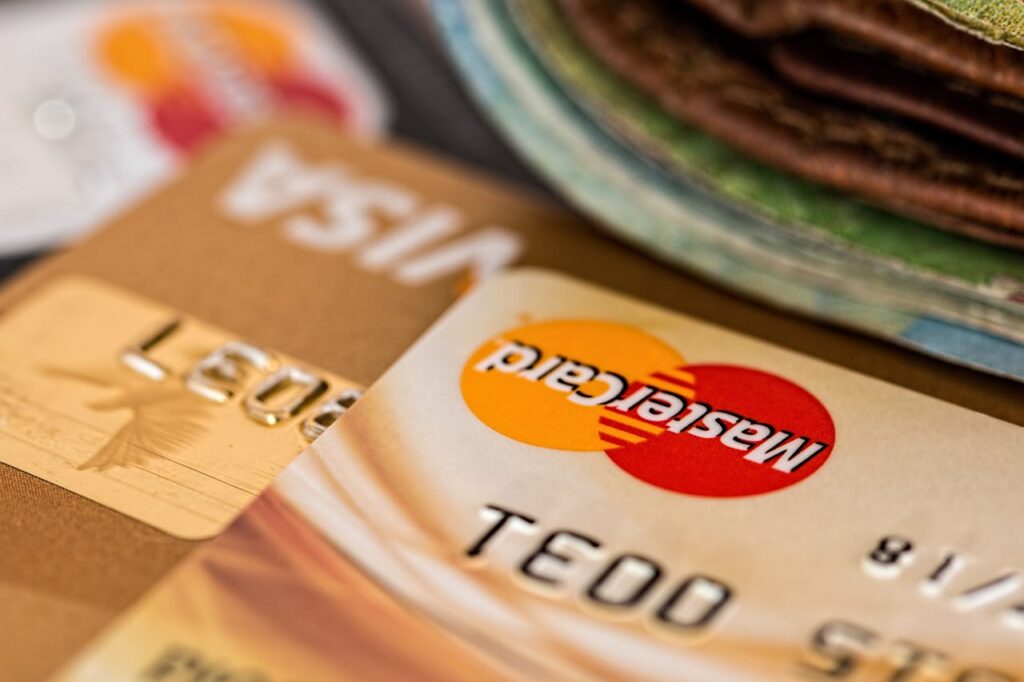Table of Contents
Do you have money tasks you know you need to do, but just haven’t gotten around to? Well, today’s financial to-do list is going to get you back on track and cross those things off your list once and for all.
Wrangling your entire life- never mind your financial life- is hard.There’s just so much to remember and so much that you’ve said you’ll get to – yes, I’ve been there.
If you are like many people, you either procrastinate or you simply can’t find the time to squeeze everything in. If this is you, then this financial to-do list checklist will help you make the time to get stuff done!
This is a to-do list for taking control of your financial life. The items in this post will help you save more, plan for the future, budget, protect your family, pay off debt, and more.I believe everyone should have a financial to-do list, and if you’ve never made one, today’s article will give you an idea of what should be on yours.Your 2025 Financial To-Do List (15 Things To Check Off)
Now, you definitely do not have to do everything on this to-do list, but this list will give you ideas and motivation for making and tackling your list. You may also find some things you would normally forget about or overlook.
1. Create or update your budget,Your 2025 Financial To-Do List (15 Things To Check Off)
When was the last time you looked at your budget? This is a great thing to put at the top of your financial to-do list because it can have a positive impact on how you spend and save.
I recommend looking to see if you need to:
- Update/ change your income or expenses
- Check in on your spending and see if anything needs to be changed or worked on. An overview: whether or not the budget is realistic and if it needs improvement.

2. Take advantage of your company’s 401(k) match
If your company has a 401(k) match, then you should seriously think about signing up.
A company or employer match is when your employer contributes to your 401(k), which is a kind of retirement account that you get through an employer.
This is one of those things on a financial to-do list that’s arguably best, considering how a 401(k) match is basically free money helping to grow your retirement savings. If you can, I highly advise that you take your company’s match!
A 401(k) lets you invest a portion of your paycheck before taxes are taken out, and the amount in your 401(k) can grow tax-free until you withdraw. Once you reach retirement and take money out of your 401(k), the amount you withdraw from this account is taxed.
View your 401(k) as an account that holds investments, similar to how your bank account holds your money. You might choose to place investments in your 401(k) in things like stocks, mutual funds, and more.
3. To safeguard your family, purchase life insurance
If you haven’t gotten a life insurance policy as yet, now is a good time to get one.
Life insurance is most likely an expense that you can afford. I did a quick search and I was able to find a $1,000,000 policy for 20 years, for less than $30 per month.
Life insurance is money in case you die for your family. Whether the sole earner or if without a job and others rely on you, this is a vital need for any household or families.
You can use life insurance money to pay for funeral expenses, day-to-day bills, pay off debt-even if you are single, if your parents have cosigned on your debt such as student loans, life insurance is so important!, etc.
4. Get a free credit report
It is always good to go through your credit report from time to time. Checking of credit report should be on your to-do list because it will help you get debt issues taken care of and show if there is any fraud on your accounts.
You are entitled to one free credit report annually from the three major credit bureaus: Equifax, TransUnion, and Experian.
That means you get one from each, so three a year. You can even space them out so you can get one credit report every four months.
5. Shop for less expensive insurance
Unfortunately, chances are you are overpaying for insurance, and that is why this one needs to be on your financial to-do list at least once a year.
Shopping around for car and home insurance is highly recommended since you may be able to save over $1,000 on each policy by merely shopping around.
In fact, not too long ago, one of my family members was paying about $2,200 yearly in car insurance, and upon knowing this, I could not just believe it. I knew right then that they were overpaying for car insurance. I have easily helped them find insurance with better coverage for just $600 a year. Yeah, they could save nearly $1,600 in less than literally 30 minutes and they were still with one of the top car insurance companies.
6. Create an emergency fund
No matter how small one starts with, emergency funds can be quite helpful.An emergency fund is money that you have saved for when something unexpected happens.
Your emergency fund can be used to pay your bills if you lose your job, pay for a car repair or a medical bill, or something like a surprise leaking roof. You can see why I’ve suggested starting an emergency to this financial to-do list-it helps you when you need it the most!

7. Invest in your future
If you’ve been wanting to invest but haven’t started, then take this financial to-do list as the sign you should start!
Investing is key in the aspect that it helps you retire, it gives you money in more significant amounts in the long run, among others.
Otherwise, if you didn’t invest it, all of your savings will just be parked there with zero earnings coming your way.
This is important to note because $100 today will not be worth $100 in the future if you just let your money sit under a mattress or in a checking account. However, investing can actually turn your $100 into something more.
For example: If you put $1,000 into a retirement account that has an annual 8% return, 40 years later that would turn into $21,724. If you started with that same $1,000 and put an extra $1,000 in it for the next 40 years at an annual 8% return, that would then turn into $301,505. If you started with $10,000 and put an extra $10,000 in it for the next 40 years at that same percentage rate, that would then turn into $3,015,055.
8. Ditch Your Pricy TV Bill
Cancelling cable or some of those streaming services is something I know for most people has been on their to-do list for quite some time.
Paying for cable or a number of streaming services at one time really adds up, and I know many people who have been procrastinating on canceling for quite a while.
Look really hard at how much you’re paying to watch TV, and then think of what you could do with the money.
We got rid of our cable over five years ago. Right now we pay for Netflix, but even that’s only something we added on after being without it for so many years. We do not regret it.
9. Determine Your Net Worth
Do you know your net worth?
There’s a free, easy way to calculate and track your net worth, and it’s probably the most popular financial tool in existence right now.
Empower is free personal finance software that allows users to better manage their finances and track their net worth.
You can link and track accounts like your mortgage, bank, credit cards, retirement accounts, and more, and Empower is free.
You can track cash flow, spending, the amount you save, investments, and more on this tool. It’s so helpful to see it all in one place!
10. Use travel rewards credit cards to take a low-cost vacation
Taking a vacation may not sound like something that should be on your financial to-do list, but what I’m sharing is an affordable way to take your next vacation.
A rewards travel credit card involves earning points redeemable for free or cheap travel. You may earn airline tickets, gift cards, hotel stays, cash, and so on in exchange for just simply using your credit card.
11. Get a remote career
Want to find a new job? Well, a work-from-home job is one to consider.Finding a new job or side hustle can help you bring in more money to put towards other financial goals you might have such as paying off debt, starting an emergency fund, investing, and so on.

12. Create an emergency binder
Are you organized with all of your important documents and personal information?
I know many people who probably wish that they had all of their important information in one easy area.
If this is you, then starting an emergency binder should be on your financial to-do list!
An emergency binder is a place to store personal financial information, such as bank account numbers and passwords. You can store insurance information, personal information about you and each member of your family, information about bills, and more.
I know there are many, many families who would be lost if something were to happen to the person who usually manages their finances.
Accounts could get lost, you may forget passwords, bills may go unpaid, life insurance may be hard to find, and more.
It is always better to have a family emergency binder in case something were to happen; though it is something no one ever wants to think about.
This can be useful in non-emergencies as well. Creating a binder like this organizes all of your family’s information in one place. It makes finding any piece of information quick and easy, and you’ll probably refer to it often.
13. Hold a financial meeting
If you have a spouse or a partner, then having regular money meetings is important so that everyone is on the same page and knows what is going on.
In these family money meetings, you may want to talk about:
- Doing an annual financial checkup-doing this list!
- Looking at your debt and seeing what you can do to eliminate it-if that’s your goal
- Looking over your goals and seeing how you can make them a reality
- Going over the family budget together
- Talking about retirement, and how you’re progressing towards it
- Planning a vacation, including how much it will cost and how you’ll pay for it
- Anything other major expenses that may be coming up in the near or long-term, such as buying a house, a car, paying for school, and so on
- Any financial issues that you or your family may be facing.
14. Review Your Debt
According to the New York Fed’s Household Debt and Credit Survey, in 2021, the average debt per household in the United States was $96,371. Mortgage and consumer loans account for that, but it is a pretty huge number!
Debt, particularly high-interest-rate credit card debt, can hold you back from things like being able to take vacation time, retire, save for emergencies, and many other things.
If you already have a plan for debt repayment, then checking up on your progress should be part of your financial to-do list. You can check how close you are, whether you can increase payments, and so on.
15. Establish new financial objectives
Having financial goals to work towards — such as debt payoff milestones, a specific savings goal can help you remain motivated.
Some examples of your financial goals could be: Save up to make a down payment to buy a house Retire before you turn 30, 40, 50 or 60 Pay off your student loans Save up six months’ worth of expenses in an emergency fund Reach $1,000,000 net worth Buy your first rental property.

Conclusion
A general financial to-do list serves as your roadmap toward success in the year 2025. Do these 15 tasks to set up a brighter financial future.
FAQs
What’s the biggest financial priority in 2025?
Establishing an emergency fund and reducing high-interest debt are the most fundamental priorities.
How can I get started with budgeting if I’m new to it?
Track a month of income and expenses. Then categorize to create a real budget.
Should I save or pay off debt?
Continue to build up a small emergency fund while making extra payments on high-interest debt.
How much is a good amount of money for an emergency fund?
Three to six months of living expenses is a good rule of thumb.
How can I rapidly improve my credit score?
Pay all bills on time, keep utilization low, and dispute errors on your credit report.

